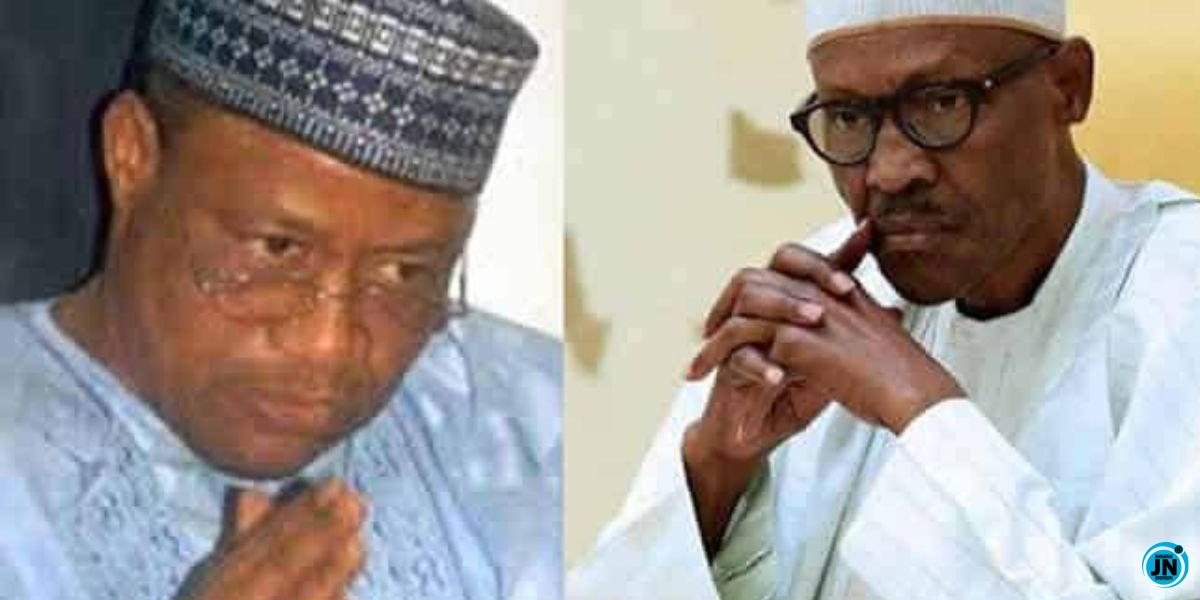
Former military head of state, Ibrahim Badamasi Babangida (IBB), has openly revealed the reasons behind his decision to orchestrate the overthrow of Muhammadu Buhari’s regime in 1985. According to Babangida, his intervention was prompted by a growing concern that Buhari’s policies were detrimental to the country’s progress, leading to dissatisfaction within the military and among the general populace.
The revelation is contained in his autobiography, A Journey In Service, which was officially launched in Abuja on Thursday. In the book, Babangida offers an in-depth account of the power struggle that led to the coup, shedding light on the internal tensions within the military and the broader political climate at the time.
Babangida, who initially served as Chief of Army Staff under Buhari, recalled how he had growing reservations about the direction of the government. Buhari, who himself had come to power on December 31, 1983, after toppling the civilian government of Shehu Shagari, had implemented policies that Babangida and other key figures within the military believed were oppressive and counterproductive to national stability.
Describing the buildup to the coup, Babangida recounted how he traveled from Minna to Lagos on August 27, 1985, to assume leadership of the country. He noted that tensions had been simmering for several months, and the change in government was, in his view, inevitable. His concerns, he explained, were shared by other senior military officials who believed that the state of affairs in Nigeria was deteriorating under Buhari’s rule.
In his own words, Babangida stated, “On that day, it became my lot to step into the saddle of national leadership on behalf of the Nigerian armed forces. The change in leadership had become necessary as a response to the worsening mood of the nation and growing concern about our future as a people. All through the previous day, as we flew from Minna and drove through Lagos towards Bonny Camp, I was deeply reflecting on how we as a nation got to this point and how and why I found myself at this juncture of fate.”
He further elaborated on the underlying issues that led to the coup, emphasizing that, by the beginning of 1985, the Nigerian populace had become increasingly anxious about the country’s future. According to him, the overall atmosphere was tense, with clear signs of instability that signaled imminent danger. He noted that a growing sense of dissatisfaction had begun to take root among military officers who had initially supported Buhari’s government, leading to a critical divide within the armed forces.
Babangida wrote, “By the beginning of 1985, the citizenry had become apprehensive about the future of our country. The atmosphere was precarious and fraught with ominous signs of clear and present danger. It was clear to the more discerning leadership of the armed forces that our initial rescue mission of 1983 had largely miscarried. We now stood the risk of having the armed forces split down the line because our rescue mission had largely derailed. If the armed forces imploded, the nation would go with it, and the end was just too frightening to contemplate.”
He went on to explain that the once-unified military, which had acted decisively in December 1983 to remove the civilian government, had by 1985 become internally divided. This division, he feared, could escalate into factional conflicts within the armed forces, ultimately threatening national security. He added, “Divisions of opinion within the armed forces had come to replace the unanimity of purpose that informed the December 1983 change of government. In state affairs, the armed forces, as the only remaining institution of national cohesion, were becoming torn into factions; something needed to be done lest we lose the nation itself. My greatest fear was that division of opinion and views within the armed forces could lead to factionalisation in the military. If allowed to continue and gain root, grave dangers lay ahead.”
Babangida’s account provides a rare and detailed glimpse into the political and military dynamics of the era, shedding light on the complex factors that influenced the course of Nigerian history. His autobiography delves into the events leading up to the coup, the motivations behind his decision to seize power, and his perspective on the challenges of governance during his tenure.

